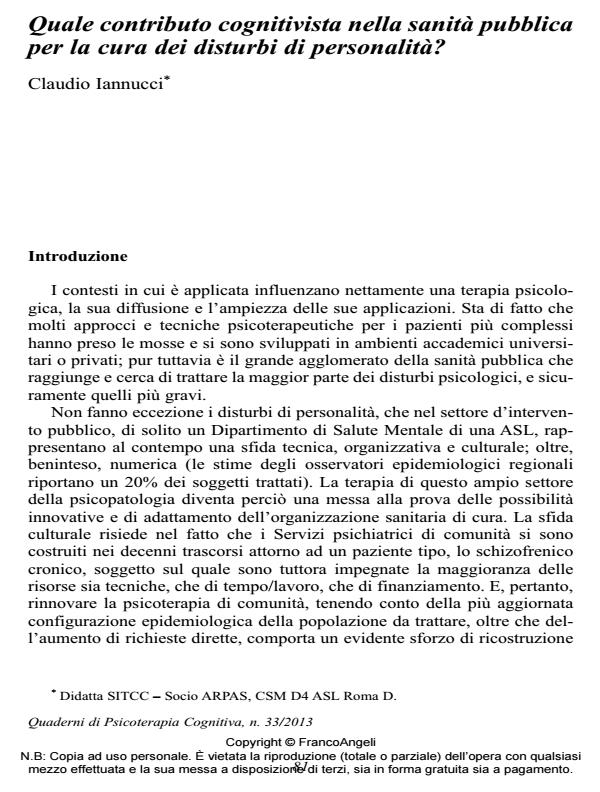Which cognitive contribution in public health for the treatment of personality disorders?
Journal title QUADERNI DI PSICOTERAPIA COGNITIVA
Author/s Claudio Iannucci
Publishing Year 2013 Issue 2013/33
Language Italian Pages 9 P. 81-89 File size 113 KB
DOI 10.3280/QPC2013-033006
DOI is like a bar code for intellectual property: to have more infomation
click here
Below, you can see the article first page
If you want to buy this article in PDF format, you can do it, following the instructions to buy download credits

FrancoAngeli is member of Publishers International Linking Association, Inc (PILA), a not-for-profit association which run the CrossRef service enabling links to and from online scholarly content.
The psychotherapy of personality disorders is a cultural challenge, technical and organizational set-up mental health services. The models organized by cognitive psychotherapy provide important training tools and methodology around which redevelop psychotherapeutic interventions. Key concepts widely used in cognitive framework, as disorganized attachment, the joint-collaborative position in therapeutic relationship, the goal of increasing metacognition, the setting of multiple co-therapy and peer-counceling, can usefully be imported into psychotherapic public practices.
Keywords: Personality disorders, public services of mental health, co-therapy, protocols treatment.
Claudio Iannucci, Quale contributo cognitivista nella sanità pubblica per la cura dei disturbi di personalità? in "QUADERNI DI PSICOTERAPIA COGNITIVA" 33/2013, pp 81-89, DOI: 10.3280/QPC2013-033006